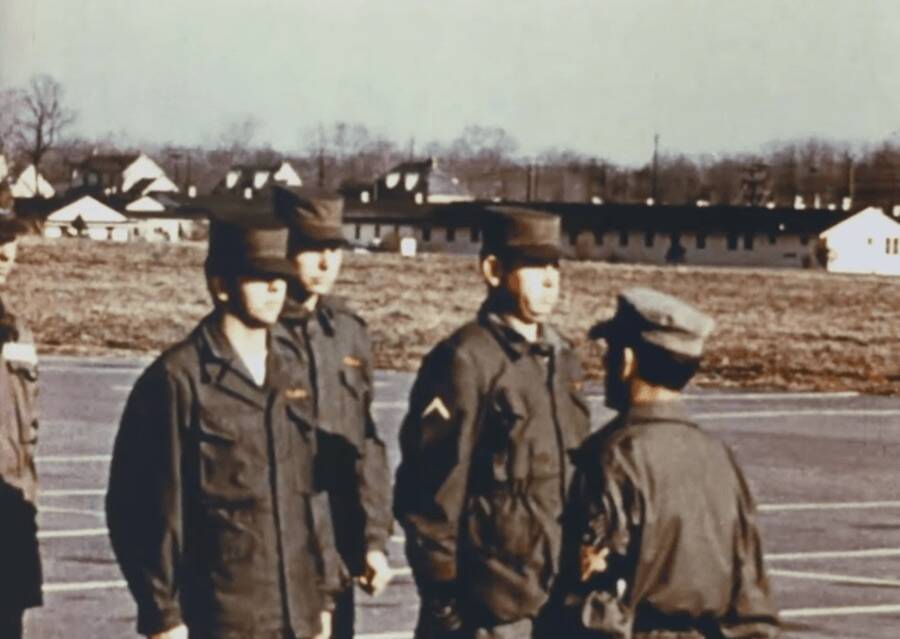Edgewood Arsenal: A Cold War-Era Human Experiment Program

U.S. National ArchivesA still from a U.S. Army video showing the effect of LSD on soldiers.
On a much darker note, secret U.S. government operations are not always just laughably ridiculous or strange. In some cases, they were truly horrific, and the Edgewood Arsenal program is a perfect example of that.
During the Cold War, at a Maryland facility known as Edgewood Arsenal, the U.S. military secretly conducted gut-wrenching experiments on their own soldiers. One involved exposing soldiers to sarin, a deadly chemical developed by the Nazis that can kill a person within minutes. Other soldiers were subjected to tear gas, mustard agents, and dangerous drugs.
Some soldiers were given LSD without knowing what it was, and most of the soldiers who signed up to be at Edgewood Arsenal were misled about what would happen there. They were often told they were simply testing out army equipment. Had they known the truth, they likely wouldn’t have signed up.
Edgewood Arsenal’s director, L. Wilson Greene, laid out specific reactions he aimed for with these tests. He saw value in any chemicals that could induce “fits or seizures, dizziness, fear, panic, hysteria, hallucinations, migraine, delirium, extreme depression, notions of hopelessness, lack of initiative to do even simple things, suicidal mania.” He often got the results he was looking for — to the detriment of the soldiers who volunteered, of course.
Many volunteers were left psychologically or physically scarred from the experiments. Some were hospitalized, others remained paranoid for weeks after the drugs wore off, and others went temporarily blind or suffered from long-lasting hallucinations. In most cases, volunteers felt the effects of the experiments for years afterward, struggling with depression and suicidal ideation. Some even developed nervous system disorders.
Disturbingly, the program lasted from 1948 to 1975. It only ended when a Congress investigation exposed Edgewood Arsenal’s coercive recruiting process and failure to obtain informed consent from their volunteers.





